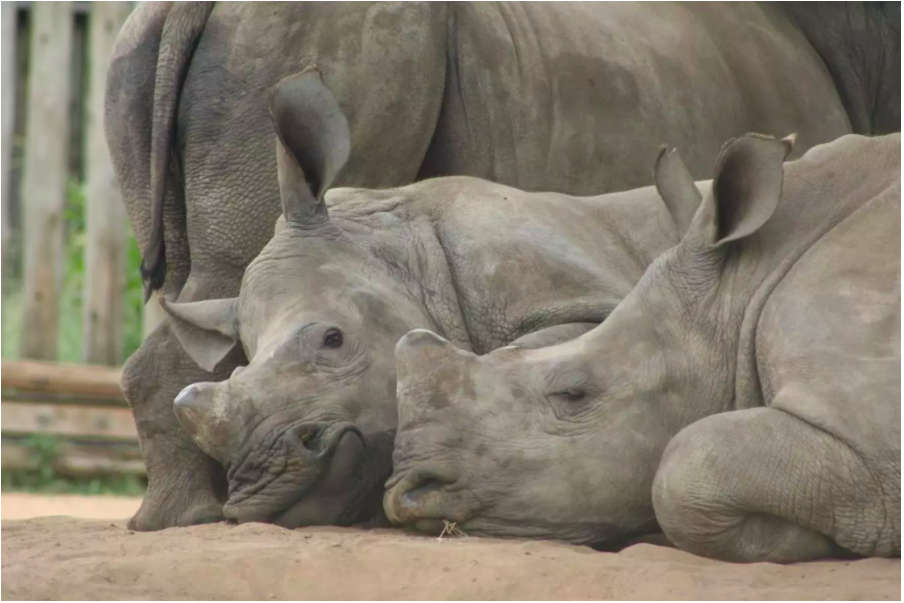Meet the dogs on the anti-poaching front line
How super-trained canines have become a crucial part of the fight to conserve wildlife

Early evening in the Zimbabwean savannah, the light is fading. Lions begin to rouse from their daytime slumber, minds focused on dinner. But it’s not just lions hunting their prey in the African dusk, humans are too. Three men have been spotted on the conservancy with a rifle and backpack - poachers - hoping for a night-time rhino kill.
Polaris, a sleek and muscular black dog in body armour is released, followed by another athletic tracker dog, Rogue. Handler, Samuel, follows behind. The dogs track the poachers and cover enough ground in just one hour, in low light, to find the men. The poachers panic, drop their equipment, including guns and heavy calibre ammunition, and surrender. Before night falls, the poaching team have intercepted and arrested a gang and recovered dangerous arms. Welcome to the world of the anti-poaching dog units.
The mastermind behind this simple but highly effective use of dogs to prevent wildlife poaching is Daryll Pleasants, a military dog instructor. Pleasants served for eight years as a dog trainer in the Royal Army Veterinary Corps before leaving to set up a dog training business in 1998. It was following a volunteer trip to Ol Pejeta Conservancy in Kenya, assisting dog teams in their training, that he realised what difference dogs could make to anti-poaching patrols. From this, Animals Saving Animals was founded in 2016, which now trains and provides anti-poaching dogs to conservation organisations across the world.
Poaching is big business - one rhino horn can reach in excess of £200,000 - and the demand for horn continues to grow, particularly from Vietnam and China. In the last 10 years more than 7,000 African rhino have been illegally killed. In South Africa, the number of rhinos poached increased by an incredible 9,246% from 2007-14. Recent figures released from the South African government show that poaching is still at crisis levels. 1,028 rhinos were poached in South Africa in 2017, making it the fifth year in a row that over 1,000 rhinos have been illegally slain.
Yet, the introduction of anti-poaching dogs has made a real difference to poaching levels. At Ol Pejeta, only two rhino have been poached in two years, and the last northern white male rhino on earth, Sudan, is being protected from poachers by dogs here. Pleasants believes his dogs are helping reduce poaching rates by up to 72% in some areas.
Dogs are, in their nature, effective hunters. They have a great sense of smell, and are fast. In favourable conditions dogs can alert rangers to the presence of a poacher up to one kilometre away. This means anti-poaching teams are now much better equipped to track at night, and cover greater ground too. There is no technology that could work better.
Using dogs in the battle against poaching is not a new phenomenon. However, in the past, different dogs would have to be used for different roles. One dog would be sent out to track and another would then be used to apprehend a suspect, costing critical time. “Triple role” dogs, as Pleasants calls them, have cut down reaction times to poaching attempts drastically.
“I realised very soon into my new career that dogs had a far greater role in conservation than was being achieved at that time. Dogs in Africa tend to be trained in one discipline: to search, track or attack. The dogs I train are capable of fulfilling all three roles, making them highly effective members of the anti-poaching teams.” says Pleasants.
Superstars Polaris and Rogue are Belgian Malinois dogs, similar in looks and personality to the German Shepherd. The Belgian Malinois is chosen for anti-poaching work because of its superior agility, intelligence and bite strength. The breed is also used in many military operations and to guard the grounds of the White House by the US Secret Service. Pleasants calls them the ‘infantry soldier’ of the dog world.
Dogs are required to undergo an intensive training programme in the UK before eventual deployment into the field. Teaching commences at twelve weeks old, with environmental training and socialisation with other dogs. Animals Saving Animals work with partner organisations like the Big Cat Sanctuary in Kent, who allow access around the perimeters of the lion enclosures to train in realistic environments.
As dogs progress, tracking, bite work and firearms searches are introduced, followed by tactical training, which includes working under gunfire or smoke grenades. At a year old they are moved to their new conservancy or national park where they are teamed with their new handlers. Here they receive a further six months operational training before beginning life as an anti-poaching patrol dog. When eventual retirement comes, the dogs stay on the conservancies and generally remain with their handlers.
The success of anti-poaching dogs in Kenya is now being replicated across other countries. Rhino Conservation, Botswana, where Prince Harry is Patron, is working with Pleasants’ dogs. India could be next, where dogs will help safeguard tigers.
One of the rhinos being protected by Pleasants’ dogs on Ol Pejeta is Sudan, the last male northern white rhino in the world. At 45 years old and with his health slowly deteriorating, Sudan needs all the protection the dogs can give him.
You can find out more about the work of Animals Saving Animals and hear the latest on the last male northern white rhino, Sudan, at the ‘Shades of Grey: Seven Saviours of Black and White Rhino’ event in London on 15 March, hosted by Ol Pejeta and their UK partner Helping Rhinos. Daryll Pleasants will be speaking alongside well known television vet Steve Leonard (Vets in the Wild). Details at helpingrhinos.org
Join our commenting forum
Join thought-provoking conversations, follow other Independent readers and see their replies
Comments
Bookmark popover
Removed from bookmarks